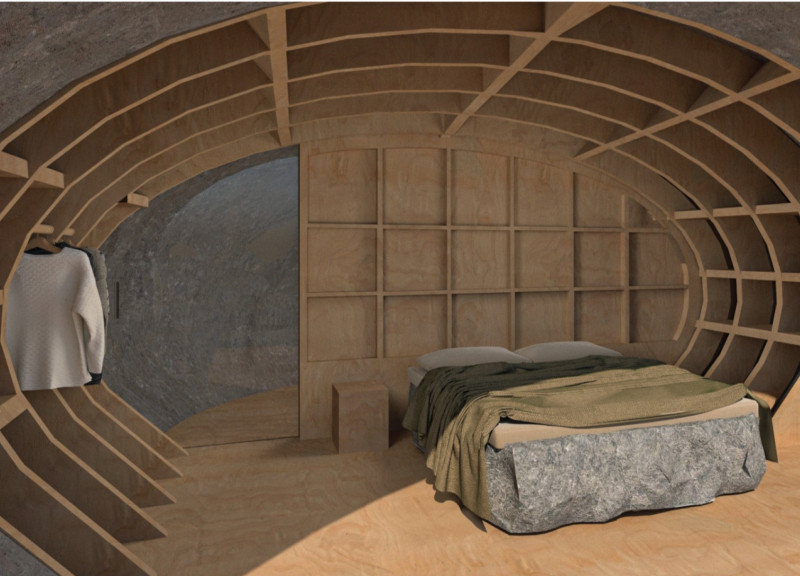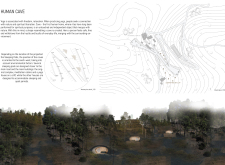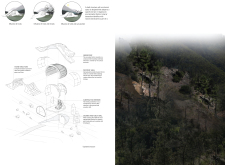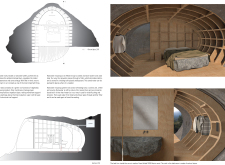5 key facts about this project
The architectural design project "HUMAN CAVE" is located in a tranquil natural setting, aimed at creating a retreat for relaxation and spiritual growth. The design revolves around a cave, representing safety and shelter while encouraging a deep connection to the environment. This space is dedicated to activities like yoga and meditation, featuring both private and communal areas that foster introspection and togetherness.
Conceptual Framework
The design emphasizes an immersive experience, inspired by the natural qualities of caves. Several sleeping pods are carefully arranged, oriented to the southwest to take advantage of sunlight and blend with the landscape. This layout helps occupants feel secure, allowing them to escape the stresses of everyday life and connect with the natural world around them.
Materiality and Sustainability
This project uses specific materials that support both the structure and environmental goals. Compressed stones in a steel mesh make up the framework for the green roof, which plays an essential role in energy efficiency and offers ecological benefits. The green roof collects rainwater, enhances biodiversity, and assists in maintaining indoor temperatures, reflecting a strong commitment to sustainable building methods.
Interior Design and Functionality
Inside the sleeping pods, comfort and practicality are paramount. Impregnated wooden beams provide a warm feeling while offering structural support. The wooden shell adds to the aesthetic appeal and incorporates intelligent storage solutions through shelves, keeping living spaces organized and free of clutter.
Ecological Systems
A rainwater recycling system is included in the design, illustrating a practical approach to managing water resources. Water is collected from rainfall, filtered, and stored in an underground tank, which is then used for essential tasks such as flushing toilets and showering. This focus on resource efficiency reinforces the relationship between the architectural design and the natural environment.
A notable design detail is the open-air space that allows occupants to engage with the surrounding landscape, completing the experience of comfort within the built environment and the peacefulness of nature.





















































